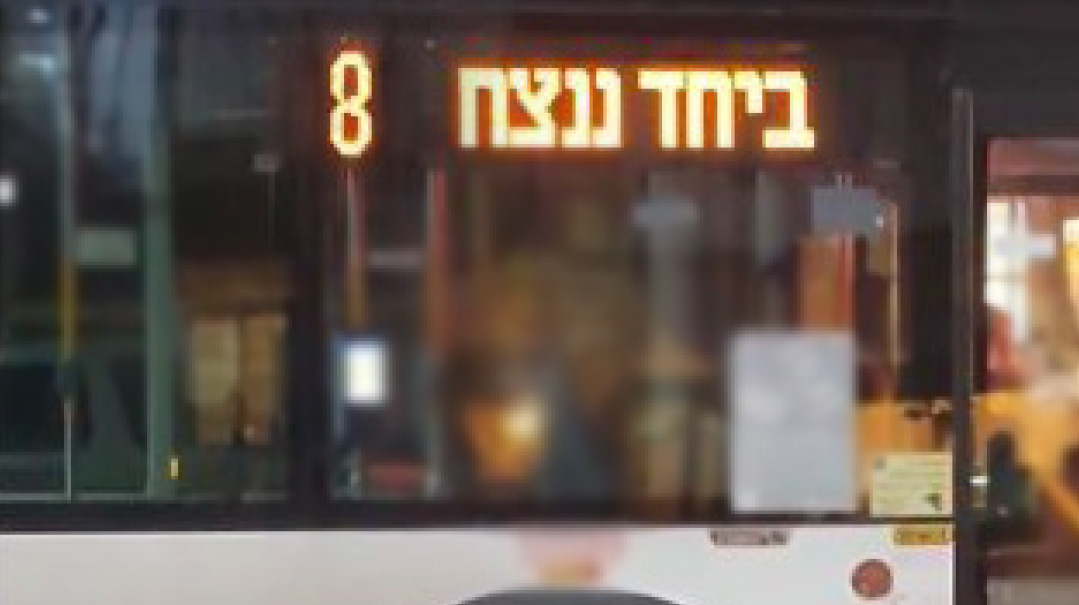Overheard at the Cash Register

“Do you give discounts to displaced families?” the first voice asked
One blustery morning about two and a half months ago I realized that after an endless Mideastern summer, winter was actually coming. I put away the summer clothing and tallied up which family members needed which items for the new season.
But this wasn’t like last winter or the winter before. The country was in mourning and shock. Hundreds of families were sitting shivah, hundreds more were trying to track down traces of life from the hostages in Gaza, and entire towns and kibbutzim had emptied out from both North and South. It felt wrong, off-key, to worry about clothing.
I waited a week, then another, then decided to squeeze in a quick shopping stop after a medical appointment.
The racks were bursting but the store felt chilly; the large space was almost empty of customers. The proprietor jumped to help me a little too eagerly. I had heard from the accounting department at work that wartime is tough for local businesses, but now I was seeing it firsthand.
I imagined the owners making their orders months before, when the streets had been full of people ambling along, venturing easily into the shops, casually pulling out wallets as items caught their eye. But window shopping had disappeared along with whatever sense of security we’d felt on October 6. Now the passersby walked purposefully against the gray sky, looking straight ahead.
I began going through the racks and put together a small pile of items to consider. Then I headed toward the back of the store, where I spotted something that might work for one of my teens.
From the back of the store, I heard two new voices. One was speaking a lilting native Hebrew. The other had a decidedly American accent. I’m a shameless people-watcher (all writers are), but this time I couldn’t see anything. So I just kept listening.
“Do you give discounts to displaced families?” the first voice asked.
“Of course!” the saleswoman said. “How are you managing? Where are you staying?”
“We’re in a hotel in this area,” came the answer. “We have no idea how long it will be — all we know is that it’s not safe for us to go back home. We left so quickly, we barely had time to pack anything. And now it’s getting cold.”
“Here, let me help you.” The saleswoman sprang into action. “Let me show you a few things to get started.”
I listened to the American woman urge the Israeli to try on this, and try on that, and maybe this could work, too, and what about that. The store, the whole scene, felt a little warmer.
At the counter, the Israeli explained that this lovely woman had shown up at the hotel and offered to take her shopping for some warm winter clothing. Wasn’t that beautiful? Could you even believe that things like this still happened today?
“I believe it,” the saleswoman said. “You stand behind the counter day in and day out, you see all kinds of things.”
Then she directed her voice toward the American woman, who was doubtlessly swiping her credit card with a smile. “It is very beautiful of you,” she said.
The answer came in a Hebrew so American it was almost a caricature, but with a sentiment so universal it transcended any accent. “You know,” the woman said, “we’ve been learning these last few weeks that the people out there like us a lot less than we thought — and that we like each other a lot more than we realized.”
Lots of things have changed since I overheard those lines at the cash register. The initial numbness and shock of the Simchas Torah attack have melted down into a steely grit, the knowledge that there is a long slog ahead that will demand a lot of sacrifice and pain. In this zone of instability and uncertainty, our very passionate nation suspended the usual agendas and made an unspoken agreement to focus on what unites rather than divides us.
Still, as time goes on and the grayness hasn’t lifted, dissent and doubt, tension and accusations are starting to crack through the unified front of three months ago. Old disagreements and resentments are furtively rearing their ugly heads again.
I never saw that woman at the counter. I have no idea who she is or even how she looks. But sometimes I wish I could lower the volume on the new-old grumblings of disunity and, in their place, blast out the wise words she delivered in her heavy Hebrew at the cash register.
—Shoshana Friedman
Managing Editor
(Originally featured in Mishpacha, Issue 993)
Oops! We could not locate your form.




